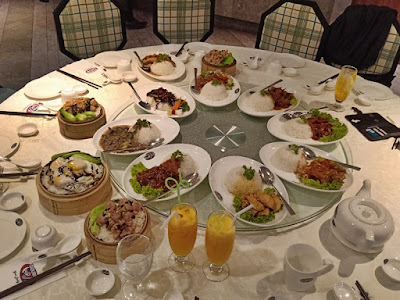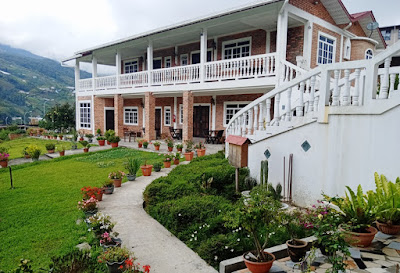BOLD STEPS NEEDED TO BETTER CONNECT WITH CHINA VIA BELT AND ROAD INITIATIVE
 |
| Dr Rafiq Idris |
KOTA KINABALU: The Belt and Road Initiative (BRI) is a development initiative program adopted by the government of China involving infrastructure projects and investments over 50 countries in Asia, Europe, Africa, and the Americas. Belt refers to the land routes for rail and road transportation, called the Silk Road Economic Belt. Road refers to the sea routes or Maritime Silk Road.
According to Dr. Rafiq Idris an Economist, Senior Lecturer, Financial Economics Program, in the Faculty of Business, Economics and Accountancy, at Universiti Malaysia Sabah (UMS) the project has become a subject of interest in recent years including countries in the south east Asian region for the potential positive effects that it may bring.
In addition, this has also become a concern because some thought it may bring negative impact he said adding that this statement expresses his view on how the belt and road initiative affects Sabah and how should we react to such project.
"China is a very important trading partner for Sabah where it becomes among Sabah’s main export destination. In 2018, export to China was reported to be amounting RM3,597,521,951 (Department of Statistics, Malaysia). Import was reported to be worth of RM2,133,719,352 (Department of Statistics, Malaysia)."
"Sabah’s main export products are those under the categories of animal and vegetable oils, and chemical and related products."
"In my opinion, this initiative is a connectivity project to link various countries with China. Many countries in Africa, Europe and even in Asia take a longer time to export (or import) products to reach China via maritime channel. It is longer when it involves land locked countries. As a result, transportation costs (including insurance cost) rises and this further increase the selling price when it reaches its destination," he elaborated.
According to Rafiq who is also Sabah Economic and Education Society chairman this project shall bring the landlocked countries of Central Asia closer to the sea and he believed the project has the potential to affect Sabah and the region significantly.
"However, Sabah will not be affected that significant as compared
to those who have direct connectivity if there is no direct route to Sabah for the maritime silk road economic belt. It is going to be significant if there is a direct sea route to Sapangar port for instance."
The reason being, Sabah has always used the maritime channel to have trade links with China and not via road, he said adding that countries that will get more significant effects are countries that will have road connected to the belt road with China in the future and those that already or will have a direct sea connectivity with China where shipping vessels berth at those selected ports.
"It is significant because period to deliver products to or from China will be shorter and this will lower the transportation cost. This will add impetus towards greater bilateral trade between countries connected under the belt and road initiative."
The spirit behind this initiative at least for Malaysia, he opined, are enhancing connectivity, greater efficiency and stimulate growth.
Countries will trade as usual but this project shall cut the cost of transporting goods and services through connectivity and efficiency improvement, he stated.
In addition, Sabah or other states in the region can benefit indirectly also when it trades with other countries involved via China. For example, transportation cost will be cheaper if there is a road link with any land locked countries in Central Asia.
Prior to this, transportation cost might be too expensive due to land locked location of certain areas.
"What is the way forward for Sabah? In my opinion, Sabah should play more pro- active role in making sure Sapanggar port become a route for vessels from China or other countries to berth. This might be done at federal level by making Sapangar port as the transhipment hub for East Malaysia. Effort to attract shippingvliners from China and other countries to berth at Sapanggar Port should be intensified."
He said it is not necessarily to target only big shipping vessels to berth as Mid-size vessels are also good enough to increase cargo traffic inSabah.
"Moreover, to realize those being mentioned above, Sabah has to increase its volume in terms of export capacity. Road connectivity with states or provinces in Kalimantan should be ameliorated. With that only may be, Sabah can be a gateway for Borneo," he opined.
To become a transhipment hub at least for the BIMP-EAGA region, cargo consolidation talks have to be organized, even though it is not that easy to materialize.
To sum up, BRI initiative is a huge and beneficial connectivity project for the world. It has huge potential to increase efficiency, lowering trade costs and stimulating growth.
" It is imperative for the government at both state and federal levelcto play role in ensuring Sabah to be connected and directly involved in this global network project instead of just a minimal indirect effects or feeder vessels connection with main ports. It is hoped that Sabah will directly link with this project/program so
that the state can gain from it," he stated.-PR



Comments
Post a Comment